Tents are not only essential outdoor equipment for any camping trip; they are the cornerstone of a comfortable and secure camping experience. These versatile structures provide much-needed shelter, shielding us from the unpredictable elements that Mother Nature throws our way. Whether it’s a sudden downpour or a sweltering heatwave, a reliable tent ensures that we can stay dry, cool, and protected.
Moreover, tents serve as a barrier against pesky bugs and critters that roam the great outdoors. With a sturdy tent, we can sleep peacefully, undisturbed by the buzzing of mosquitoes or the curious visits of nocturnal creatures. It’s a haven where we can retreat and recharge, knowing that we are shielded from nature’s little surprises.
So, whether you’re embarking on a weekend getaway or planning an extended camping trip, remember the importance of a well-maintained tent. It’s not just a piece of equipment; it’s your reliable companion, your shelter in the wilderness, and the key to a memorable outdoor experience.
The importance of tent care
Now that we know how essential a tent is to our camping experience, it’s crucial to understand the importance of proper tent care. A well-maintained tent not only ensures its longevity but also contributes to a more comfortable and safe camping trip.
Another crucial aspect of tent care is proper storage. When not in use, store your tent in a cool and dry place, free from direct sunlight. Avoid storing it in damp or humid areas, as this can cause mold and mildew to form, compromising the integrity of your tent.
Regular maintenance is also essential in caring for a tent. Check for any tears or holes and patch them up immediately using a repair kit. It’s also a good idea to reapply waterproofing spray every season to ensure that your tent remains water-resistant.[3]
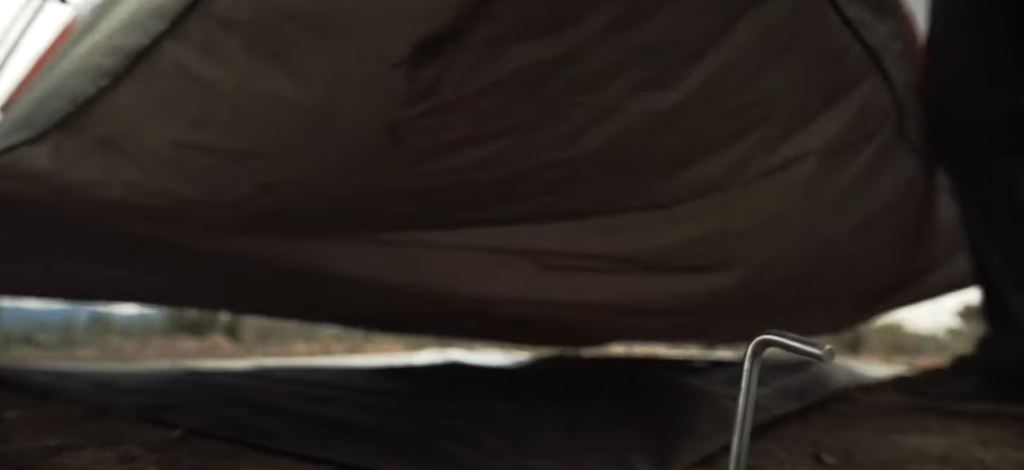
Prolonging the life of your tent
Proper tent care not only ensures a comfortable camping experience but also helps prolong the life of your tent. With proper maintenance, you can use your tent for many years to come, saving you money in the long run.
Aside from regular cleaning and maintenance, there are several tips that can significantly extend the lifespan of your tent. Here are some additional details to consider:
- Use a footprint or groundsheet underneath your tent: This extra layer acts as a protective barrier, shielding your tent from sharp objects, rocks, and uneven terrain. It not only prevents potential damage but also adds an extra level of insulation.
- Be gentle when setting up and taking down your tent: Rough handling can put unnecessary strain on the poles and fabric, leading to tears, bends, or even breakage. Take your time and handle the components with care to ensure longevity.
- Ensure proper ventilation: A tent fan or open windows can greatly improve airflow, reducing moisture buildup inside the tent. This is particularly important in humid or damp conditions, as excessive moisture can lead to mold, mildew, and unpleasant odors. Good ventilation also helps regulate temperature, providing a more comfortable camping experience.
- Store food away from the tent: While it may be tempting to keep food inside the tent for convenience, doing so can attract insects or animals that may cause damage. Instead, store food in sealed containers or use designated food storage areas to keep unwanted visitors at bay.[3]
By implementing these additional tips, you can maximize the lifespan of your tent and ensure many more enjoyable camping adventures in the future.
Preparing for Tent Care
Gathering necessary tools and supplies
Before embarking on any camping trip, it’s essential to have all the necessary tools and supplies for tent care. Here are some items you should pack to ensure that you can properly maintain your tent during your trip:
- Tent cleaner or mild soap: A gentle cleanser is crucial in keeping your tent clean and free from dirt and debris.
- Soft sponge or cloth: Using abrasive materials can damage the fabric of your tent, so make sure to use a soft sponge or cloth when cleaning.
- Repair kit: A repair kit with patches and adhesive is essential for fixing any tears or holes that may occur during use.
- Waterproofing spray: To ensure water resistance, it’s recommended to reapply waterproofing spray every season. Make sure to pack some spray for your trip.
- Groundsheet or footprint: As mentioned earlier, a groundsheet or footprint is an essential protective layer for your tent. If your tent does not come with one, make sure to bring a separate groundsheet.
- Tent fan: To improve airflow and reduce moisture buildup, consider bringing a portable tent fan with you on your camping trip.
- Sealed food containers: As a precaution against attracting insects or animals, make sure to pack sealed containers for storing food and keep them away from your tent.[1]
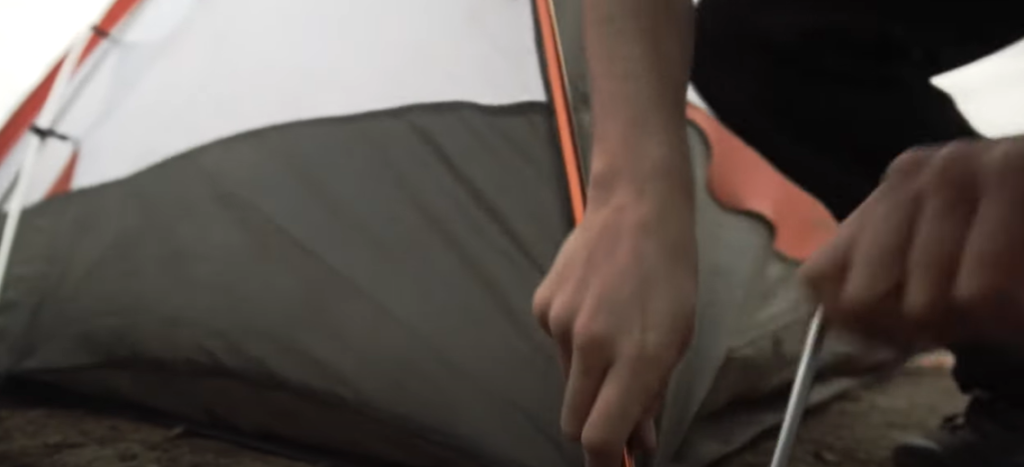
Choosing a suitable location for maintenance
When setting up your campsite, it’s crucial to choose a suitable location for tent care. Ideally, you should select an area that is flat, dry, and free from rocks or sharp objects. This will make it easier to set up and take down your tent without causing any damage.
Additionally, if possible, avoid setting up your tent directly under trees or overhanging branches. Not only can these pose a hazard during windy conditions, but they can also drop leaves, sap, or other debris onto your tent, making it harder to clean and maintain. Furthermore, it’s beneficial to find a spot that offers some natural windbreak, like a dense shrubbery or a hillside, to shield your tent from strong gusts. This will provide an extra layer of protection and enhance your camping experience.
Lastly, take into account the position of the sun throughout the day. It’s advantageous to position your tent in a way that maximizes shade during the hottest hours, especially if you’re camping in a sunny area. This will help keep the interior of your tent cooler and more comfortable, allowing for a better night’s sleep.[1]
By carefully considering these factors and paying attention to the details, you can ensure a well-prepared and enjoyable camping experience.
Cleaning Your Tent
Removing dirt, debris, and stains
After each camping trip, it’s essential to clean your tent thoroughly before storing it. This not only helps maintain the appearance of your tent but also prevents potential damage caused by dirt and debris buildup.
Before cleaning, make sure to remove any loose debris like leaves or twigs from both the interior and exterior of your tent. Then, using a gentle cleanser or mild soap and a soft sponge or cloth, clean the fabric by gently wiping in a circular motion. For tougher stains, you can use a soft-bristled brush or spot-clean with a damp cloth.
Rinse off any soap residue with clean water and dry your tent completely before packing it away. If possible, hang it up to air dry rather than leaving it on the ground, as this can prevent moisture buildup and mildew growth.[2]
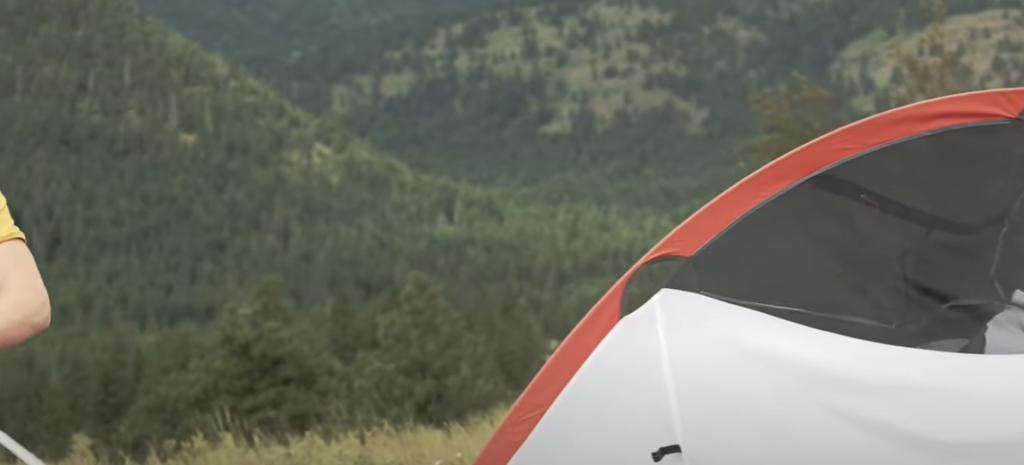
Washing and drying your tent
For a more thorough and effective cleaning, you can follow these steps to wash your tent:
- Start by setting up your tent outdoors and ensuring all the windows and doors are fully open.
- Get a hose and create a mild soap solution using a gentle detergent or camping-specific cleaner. Avoid using harsh chemicals that can damage the fabric.
- Using the hose, gently spray the soap solution onto the tent, making sure to cover all areas, including the rainfly and mesh panels. This will help remove dirt, stains, and any residual odors.
- Take a soft brush or sponge and lightly scrub the fabric, focusing on areas with visible dirt or stains. Be gentle to avoid damaging the fabric or seams.
- Rinse the tent thoroughly with clean water, ensuring all soap residue is removed. You can use the hose for this step, making sure to flush out any remaining soap from the fabric.
- After rinsing, use a clean cloth or sponge to wipe off any remaining soap residue or stubborn spots.
- Finally, hang your tent in a well-ventilated area to air dry completely. Avoid direct sunlight, as it can cause fading or damage to the fabric. Make sure the tent is fully dry before storing it to prevent mold or mildew growth.[2]
By following these steps, you can ensure a deep and thorough cleaning of your tent, prolonging its lifespan and maintaining its performance for many outdoor adventures to come.
Repairs and Maintenance
#Patching up small holes and tears
Even with proper care and maintenance, tents are prone to damage during use. It’s crucial to promptly address any small holes or tears to prevent them from worsening and becoming more challenging to repair.
For minor repairs, a tent repair kit will prove invaluable. These kits typically include patches and adhesive specifically designed for patching up small holes or tears in the fabric. To effectively use the kit, start by thoroughly cleaning and drying the damaged area. Then, carefully apply the adhesive and place the patch on top, ensuring a secure and tight bond. Apply firm pressure to guarantee a strong adhesion, and allow sufficient time for the patch to dry completely before utilizing your tent again.
Taking these preventive measures and performing timely repairs will extend the lifespan of your tent and ensure it continues to provide you with a reliable shelter during your outdoor adventures. Remember, a little attention to detail goes a long way in preserving your tent’s durability and functionality.[1]

Reinforcing seams and zippers
In addition to tears and holes, seams and zippers are other components of your tent that require regular maintenance. Over time, these can become weakened due to exposure to weather conditions or general wear and tear.
To reinforce the seams of your tent, apply a seam sealer using a small brush or roller. Seam sealers help prevent water from seeping through the stitching, keeping you dry during rainy camping trips.
For sticky or malfunctioning zippers, try using a graphite pencil to lubricate the teeth. Be careful not to use too much as it can attract dirt and debris, causing more harm than good. If your zipper is beyond repair, consider replacing it with a new one to ensure smooth functioning on future trips.[1]
Waterproofing Your Tent
To ensure your tent remains effective in keeping you dry during wet weather, it is crucial to regularly maintain its waterproofing. While most modern tents come with a waterproof coating on the fabric, this protective layer can gradually wear off over time due to use and exposure to the elements.
There are a few methods to re-waterproof your tent. One option is to use a spray-on waterproofing agent specifically designed for outdoor gear. Alternatively, you can apply a liquid solution using a paintbrush, ensuring even coverage across the entire surface of the tent. Whichever method you choose, be sure to carefully follow the manufacturer’s instructions and allow sufficient drying time before using your tent again.
By regularly maintaining the waterproofing of your tent, you can ensure its longevity and optimal performance in keeping you dry and comfortable during rainy adventures in the great outdoors.[4]
Storing Your Tent Properly
After an exhilarating camping trip, it may be tempting to hastily pack up and head home. However, taking the time to properly store your tent is crucial in maintaining its condition and ensuring it lasts for many more adventures to come.
First and foremost, it is essential to make sure your tent is completely dry before packing it away. Any lingering moisture can lead to the development of mold and mildew, which can damage the fabric and compromise the integrity of your tent. Allow your tent to air out and dry thoroughly before beginning the packing process.
When folding or rolling your tent, exercise caution and ensure that all parts and components are aligned correctly. Take care to avoid any unnecessary creases or folds that may weaken the fabric or cause damage over time. It is recommended to refer to the manufacturer’s instructions for folding your specific tent model, as different designs may require different techniques.
While it may be tempting to simply stuff your tent into a bag or container for convenience, this can lead to unnecessary wear and tear. Instead, take the time to fold your tent neatly and store it in a manner that minimizes stress on the fabric and seams. By doing so, you can prolong the lifespan of your tent and maintain its overall quality.
Lastly, consider the storage location for your tent. Opt for a cool, dry place with adequate ventilation to prevent moisture buildup and protect your tent from potential damage. Avoid storing your tent in areas prone to extreme temperatures, humidity, or direct sunlight, as these conditions can accelerate wear and deterioration.[4]
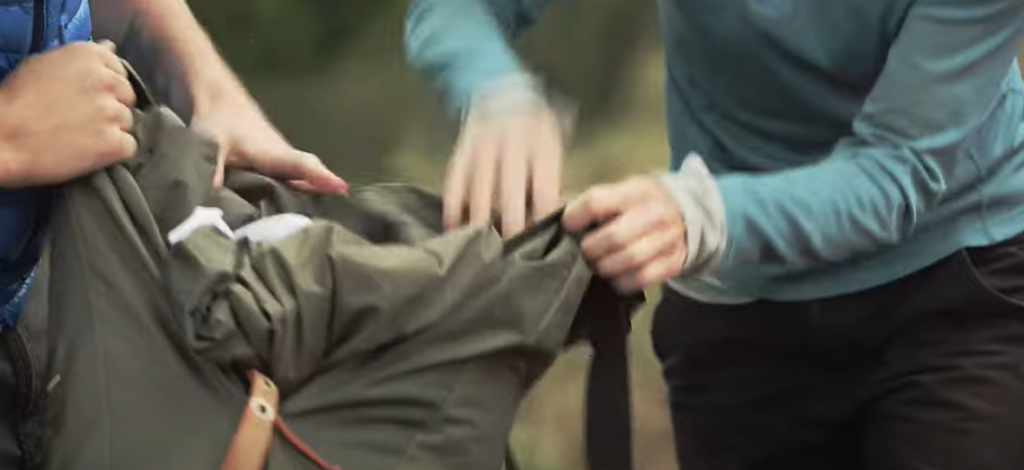
Pest Control and Cleaning
Aside from regular maintenance, it is also essential to keep your tent clean and free of pests. During camping trips, insects and other critters can easily find their way into your tent, leaving behind dirt and debris that can potentially damage the fabric.
To prevent this, it is advisable to shake out any dirt or debris before packing up your tent. Once home, you can use a mild soap and water solution to clean the tent. Avoid using harsh chemicals or bleach, as these can damage the waterproof coating and fabric.
Additionally, consider investing in a tent footprint or groundsheet to protect the bottom of your tent from sharp objects and prevent wear and tear. These footprints are also easy to clean and can help minimize the amount of dirt and debris that enters your tent.
Lastly, when storing your tent, it is a good idea to place some cedar chips or lavender sachets inside to deter insects and keep your tent smelling fresh. These natural remedies are a great alternative to chemical insect repellents and can also add a pleasant scent to your next camping trip.[4]
Extreme Weather Precautions
While tents are designed to withstand various conditions, it is important to be well-prepared for extreme weather situations. Before embarking on a camping trip, it is advisable to thoroughly check the weather forecast and make all necessary preparations to ensure a safe and comfortable experience.
In the event of heavy rain or strong winds, it is highly recommended to reinforce your tent with additional guy lines and stakes for enhanced stability. This extra measure can significantly reduce the risk of your tent collapsing or being blown away during severe weather conditions. Moreover, when selecting the location for setting up your tent, it is crucial to avoid low-lying areas that are prone to flooding. By choosing a higher ground, you can minimize the chances of your tent being inundated and protect your gear from potential water damage.
Furthermore, in case you are confronted with extreme heat, it becomes essential to prioritize proper ventilation within your tent. Consider utilizing a rainfly or opening vents to facilitate adequate air circulation and prevent the accumulation of heat inside the tent. This simple yet important step will help maintain a comfortable temperature and ensure a more pleasant camping experience, even in hot weather conditions.
Taking these precautions and being proactive in your preparations will allow you to fully enjoy your camping adventure while staying safe and well-equipped to handle any unexpected weather challenges that may arise.[4]
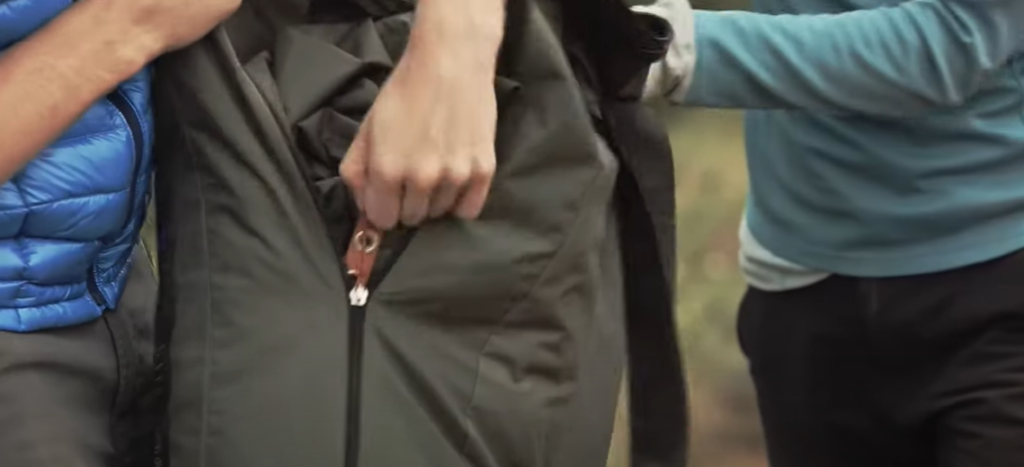
FAQ
How often should you clean a tent?
It is recommended to clean your tent after every camping trip, especially if it was exposed to dirt, debris, or any potential pests. However, if your tent was only used for a short amount of time and remained relatively clean, you can wait until the end of the camping season before giving it a thorough cleaning.
Are you supposed to wash tents?
Yes, it is advisable to clean your tent regularly. This not only keeps the fabric in good condition but also helps prevent any potential damage that may occur from dirt and debris buildup. However, it is important to follow proper cleaning techniques and avoid using harsh chemicals or bleach, as these can damage the waterproof coating and fabric. Furthermore, always make sure to thoroughly dry your tent before storing it to prevent mold and mildew growth.
How do you maintain a dry tent?
To maintain a dry tent, it is important to make sure your tent is completely dry before packing it away. Allow your tent to air out and dry thoroughly before beginning the packing process. Additionally, consider using a rainfly or opening vents to facilitate proper ventilation and prevent the accumulation of moisture inside the tent. When storing your tent, choose a cool, dry place with adequate ventilation to prevent any potential moisture buildup. Lastly, avoid packing a wet or damp tent, as this can lead to mold and mildew growth.
How often should I waterproof my tent?
The frequency of waterproofing your tent depends on the type and condition of your tent. Most tents come with a waterproof coating, but this can wear off over time due to exposure to elements such as sunlight, rain, and dirt. As a general rule, it is recommended to reapply waterproofing at least once a year for optimal protection against water damage. However, if you notice any signs of water leakage or the waterproof coating is wearing off, it is best to reapply the waterproofing immediately.
Can you sleep in a tent when it’s raining?
Yes, you can sleep in a tent when it’s raining. However, to ensure a comfortable and dry camping experience, it is important to take necessary precautions such as using a rainfly, sealing any potential gaps or openings, and setting up your tent on higher ground to avoid flooding. It is also advisable to check the weather forecast before embarking on a camping trip and make any necessary preparations for extreme weather conditions.
Useful Video: Tent Care and Maintenance
Conclusion
Taking good care of your tent is crucial for its longevity and ensuring a comfortable camping experience. By following these simple maintenance tips, you can keep your tent in top condition and be well-prepared to handle any unexpected weather challenges. Remember to regularly clean your tent, invest in protective gear such as footprints or ground sheets, and always prioritize proper ventilation. With proper care and maintenance, your tent can provide you with many memorable and enjoyable camping trips for years to come. So, get out there and enjoy the great outdoors! Happy camping!
References:
- https://www.outsideonline.com/outdoor-gear/camping/how-do-i-properly-care-my-tent/
- https://www.gooutdoors.co.uk/expert-advice/caring-for-your-tent
- https://www.millets.co.uk/blog/the-millets-tent-after-care-guide
- https://koa.com/blog/tent-care-maintenance-common-repairs-how-to-clean-a-tent/





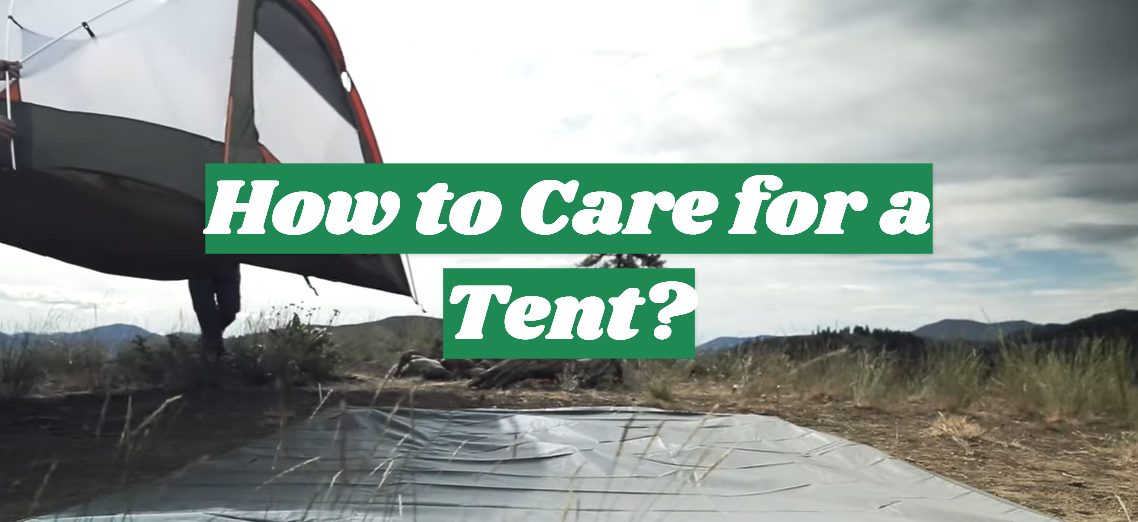



Leave a Review